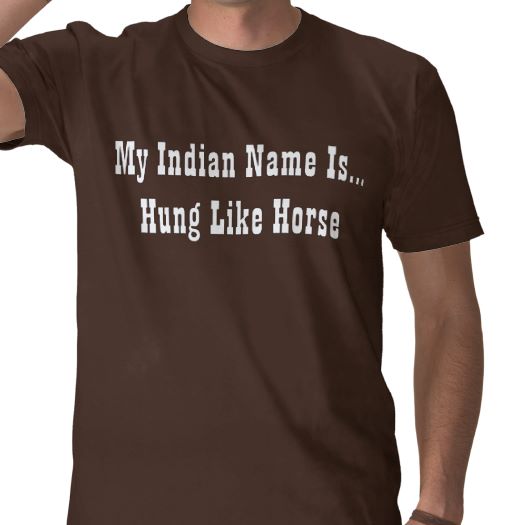Not everyone thought protesting a stereotypical t-shirt was a good use of time. Some Facebook comments on the protests:
I hear you loud and clear! People are dying in the streets and freezing to death, and others just sit there and jump from topic to topic. I have had a problem with trivial issues for a long time. They just seem to get more attention than important ones. Focus on the issues, and let's ALL make a change!
Little Everyday Issues & Racist T-Shirts--For those of you that think we are going overboard on the T-Shirts
The American Indian Movement has been fighting racism in media and sports for almost 50 years. Why? Because it has been documented in psychological journals and in academia that racial stereotypes HURT people. How a child feels about himself/herself determines their future or chances of survival. There are links from these studies to statistics of suicide rates for Native people (which we all know is the highest among everyone) and substance abuse. Some have mentioned that it is a waste of our time to be addressing “everyday issues” such as mascot issues or shirts like “My Indian Name is Falls Down Drunk” or “My Indian Name is Runs with Beer.” However, how do we teach our children, and those non-Indian children, this is wrong? There have been so many bricks taken down from our self-esteem and self-worth as a people and as individuals (historical trauma)--that addressing “little everyday issues” becomes a necessary act towards stepping forward and helping our communities heal.
Saying that these “little everyday issues” don’t mean anything or is not worth pursuing is like saying “Don’t worry about those termites eating up the house.” That thought process is insane.
Communities become empowered by standing up to these “little everyday issues” that are socially conditioned to be okay--the white man says it is, and some of you believe it-- but it is not. Abuse of any kind, physical or emotional, is wrong.
I can see both sides on this issue. On the one hand, it was a single shirt in a single shop, probably hanging out of sight. In previous t-shirt battles, some vendors were selling a whole line of "Indian name" t-shirts. Others were selling them online or at universities or both, where a lot of potential buyers could find them.
On the other hand, I frequently discuss the harm of Native stereotyping, the effects of microaggressions on minorities, and the "broken windows" theory of racism--how small problems can escalate into large ones. How do you stop something like the treatment of Frank Paul, the drunk Indian who was left in the snow to die? By teaching the police and others to treat drunk Indians like people, not stereotypes.
Also note that AIM Santa Barbara generated enough publicity to get an article in the newspaper. Media awareness is always good. It tells the people who think Indians are extinct that they're not. That they're still here and still fighting for their rights.
If it were me, I might've talked to or e-mailed the store owner once...posted something about it online...and then moved on. If I were going to tackle "Indian name" t-shirts, I'd find out who's manufacturing and distributing them. I'd try to cut them off at the source.
I'd organize AIM chapters and anyone else who wanted to protest into a national force. I'd launch a "letter-writing" campaign with phone calls, e-mails, social media, and, yes, letters. I'd think about staging a live event, perhaps a shirt burning, so the media would cover it. I'd get a celebrity such as Russell Means or a Twilight werewolf to be the face of the protest.
So I wouldn't tackle one "Indian name" t-shirt at a time. That's inefficient; it's not the best use of one's time or energy. But I would tackle the t-shirts and mascots and other "little everyday issues." I think the naysayers are naive about the connection between how we perceive Indians and how we treat them.
For more t-shirt controversies, see T-Shirt Shows Skull in Headdress, "Hanging" Louis Riel T-Shirts Offends Métis, and Lucky Brand Sells "White Lightning" T-Shirt. For a statement against these shirts, see Michigan Opposes "Indian Name" T-Shirts.


Is it bad that I almost want an Indian porn star named Young Man Shames His Horses? (Don't be surprised. I almost want 4kids to dub all my favorite darker and edgier foreign shows.)
ReplyDeleteMore seriously, though, are we ignoring that Indians are still second-class citizens? A t-shirt or a mascot is nothing compared to, I don't know, A LEGAL SYSTEM WHICH PRETTY MUCH ALLOWS ANY WHITE GUY TO COMMIT UNSPEAKABLE ACTS AGAINST YOU.